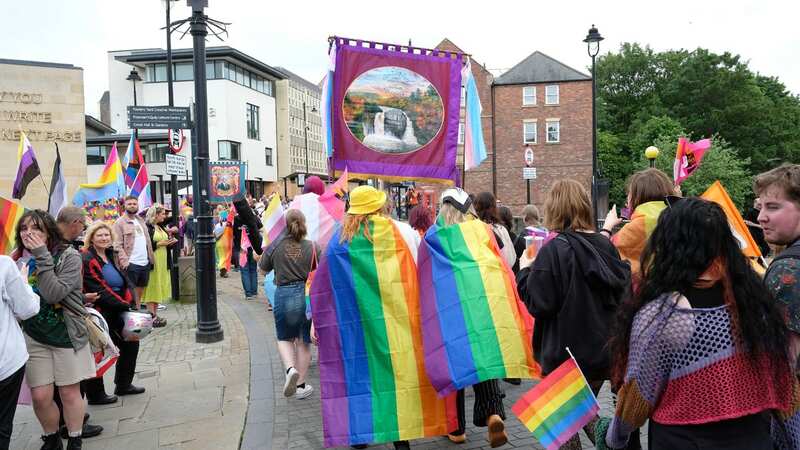'It's harder to feel Pride as a disabled queer woman'

We’re coming to the end of another Pride month and once again while it’s been a vital and wonderful month, as a disabled person there are a lot of reasons I struggle with it.
Firstly, where are the disabled people at Pride? The answer is not there cos it’s usually not accessible.
The obvious inaccessibility issues that occur with most events that are primarily held in parks and clubs, disabled people can’t get around them cos of mobility issues. But there’s also the fact that Pride events are usually very loud and overstimulating, without many quiet or covered areas.
When disabled people are physically unable to attend Pride events it gives the message that we don’t belong in the LGBTQ+ community.
Then there's the way disabled people are treated by society when dating and while this doesn’t just apply to the LGBTQ+ community, they’re not immune to it.
 Strictly's Molly Rainford and Tyler West fuel romance rumours while on tour
Strictly's Molly Rainford and Tyler West fuel romance rumours while on tour
As with many aspects of life, disability is seen as a bad thing so many wouldn’t date a disabled person to start with. In a survey on Gen Z dating, Tinder found that half of the people asked would date a disabled person, but that’s also half that wouldn’t.
I’ve heard from single disabled friends about the minefield that is navigating apps as a disabled person. From being outright told they’re disgusting to being asked invasive questions about their sex lives.
As a neurodivergent woman - I have dyspraxia and very likely ADHD - there are also extra reasons that I struggle with Pride.
As a result of being very online I know a lot of other neurodivergent people - we all seem to flock together because we can be our full selves around each other. In recent weeks I’ve noticed how many of my neurodivergent friends fall under the LGBTQ+ umbrella, in particular, they’re also in many cases non-binary or trans.
There’s been transphobia bubbling up for a good few years but it’s really come to head this year, especially online. A big thing that transphobes like to lie about is that neurodivergent and learning-disabled people are being led into drag, queerness and gender-affirming surgery without really knowing what they’re doing.
This is incredibly dangerous because it paints anyone helping LGBTQ+ disabled people as groomers or abusers, indoctrinating them into something they can’t understand. This is turn infantilises disabled people and makes it seem like we can’t possibly know our own bodies.
Research has shown that autistic people are more likely than neurotypical people to be trans or non-binary. Likewise, gender-diverse people are more likely to be autistic than cisgender people.
The lack of research around this means we don’t know why, but the danger is that when gender dysphoria isn’t treated seriously because of neurodiversity, we not only take away agency but prevent people from accessing the right care.
Another reason Pride is something I struggle with is that declaring who we love as disabled can be dangerous in ways it isn’t for non-disabled people.
Specifically, many disabled people can’t live with their partners (again of any gender) because they would lose their benefits. So any declaration of love, especially a type many people think is wrong, could lead to them being grassed up to the lovely old DWP and investigated.
 Nail salon refuses to serve disabled teen saying it 'doesn't do people like her'
Nail salon refuses to serve disabled teen saying it 'doesn't do people like her'
It was incredible when the LGBTQ community gained marriage equality, but this doesn’t apply if you’re queer and disabled and until disabled people can get married without fear of losing their support we will not have marriage equality in this country.
As LGBTQ+ Pride Month ends, Disability Pride Month begins. For me, Disability Pride Month is about getting the message out about how we can do better in the representation and treatment of disabled people. While I love doing my job, it always feels like the pressure is on disabled people to educate and sometimes I’m not in a teaching mood.
Going forward, for LGBTQ+ and Disability Pride Months, there needs to be more focus on holding organisations to account so everyone is included from the offset, not as an afterthought.
Read more similar news:
Comments:
comments powered by Disqus

































